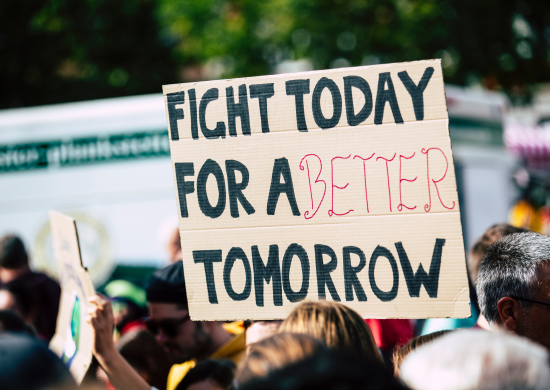Among the many forms of pollution that contribute to climate change, hydrofluorocarbons (HFCs) are among the most potent. Scientists agree that to keep global warming under the crucial 2°C threshold, phasing out HFCs – a whole class of gases that are used as refrigerants and in some industrial processes — needs to be part of the solution. Recent progress at the latest round of international negotiations makes me increasingly optimistic that we will see a major breakthrough on HFCs this year. Here’s what you need to know:
Negotiators met in Vienna July 15-23 for a series of meetings related to the Montréal Protocol. Parties to the Montréal Protocol already agreed last year, in what is called the Dubai Pathway, to reach an agreement on an amendment in 2016 to phasedown hydrofluorocarbons. The Vienna meetings were an important opportunity for moving forward on that agreement, with the Meeting of the Parties scheduled for October 10-14 in Kigali, Rwanda.
There were signs of continued momentum for agreeing to an amendment this year. The negotiators made progress on a number of the most critical issues debated including funding and intellectual property. Parties moved closer together in their opinions on when developed and developing countries would phase-down HFCs and by how much.
The negotiators were encouraged by members of the High Ambition Coalition, which played an important role during the Paris negotiations, and a high-level meeting of the Climate and Clean Air Coalition (CCAC) which stated their strong support for “the adoption of an ambitious Montreal Protocol amendment in 2016.” U.S. Secretary of State John Kerry also gave a rousing speech during the meetings: “amending the Montreal Protocol to phase down HFCs is one of the single most important unitary steps that we could possibly take at this moment to stave off the worst impacts of climate change and to protect the future for people in every single corner of the globe.”
Much work remains to be done. While major concepts were agreed to, there was no unified text for negotiators to take back to their capitals. For this reason, negotiators may meet again before October to make further progress. We’ll be watching closely!
If negotiators successfully come to agreement to reduce HFCs, it will have immediate impacts, as well as offer us a fighting chance to stay under 2 degrees.
Below are the topline reactions from a number of the NGOs closely following this process as well as a few of the articles and opinion pieces, which appeared in the media over the last couple weeks.
NGO Reactions:
- CAN International: “a strong signal that action is a priority following the signing of the Paris Agreement”
- CSE: “clear signs of a deal with solutions to all the major challenges”
- EIA International: “Countries are moving in the right direction but there is a huge amount of work to be done to finalise an ambitious amendment in Kigali in October.”
- IGSD: “perceived universally in the climate context as the piece that you need to do this year”
- NRDC: ‘a big step forward that caps a week of enormous progress towards the final deal expected in Kigali”
Selected Media Coverage:
- Bloomberg BNA: Nations Narrow Differences but No Deal Yet on HFCs
- The Christian Science Monitor: World leaders poised to seal landmark emissions deal in Vienna
- Climate Home: Cooler coolants: closing in on a climate deal in Vienna
- E&E Climate Wire: In Paris redux, India seen as stumbling block to climate deal
- The Hindu: India’s proposal on HFCs gets mixed response in Vienna
- India Today: Nations make progress over phasing out HFCs
- New York Times: A Sequel to the Paris Climate Accord Takes Shape in Vienna
- New York Times: A Coolant That Threatens to Heat Up the Climate
- Reuters: Deal on cutting greenhouse gases in sight for this year: Vienna delegates
- Reuters: Helping refrigerators save the climate
- Time: Why Climate Negotiators Have Turned Their Attention to Your Air Conditioner
- The Washington Post: The world is poised to take the strongest action of this year against climate change



